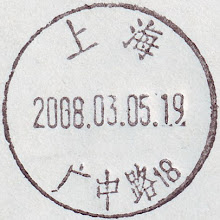
 Indonesia FDC
Indonesia FDC
Name: 100 Years of National Awakening
Date of Issue: 20 May 2008
National awakening was the ear of the rise of nationalism and the spirit of struggling towards Indonesian independence previously framed in primordial outlook. This awareness emerged as a result of ethical politics. It is an idea about moral responsibilities of colonial government towards native welfare as a criticism of
"Tanam Paksa" (cultivation system) politics. The era was marked by two significant events, namely the establishment of Budi Utomo organization and the conduct of Yout Congress which resulted a declaration of "Sumpah Pmuda" (Youth Pledge).
The establishment of Budi Utomo in May 20 1908 in Jakarta marked the initial era of nationalism awareness among Indonesian people. As a first Indonesian nationalist organization pioneered by STOVIA (School Tot Opleiding Van Inlandsche Artsen) students, it was aimed at building harmonious relations between all follow nation elements by improving education, agriculture, commerce, and culture sectors; as well as raising the dignity of Indonesia as an honored nation through unity towards freedom. Originating from Sutomo’s idea, the organization was formerly centralized among Javanese, Sundanese, and Madurans, who were expected to be able pay attention to and improve the fate of local citizens, yet in its development, Budi Utomo was no longer exclusive but welcomed everyone to join the organization disregarding status, wealth, or education background.
Budi Utomo had several leadership changes, among of them came from upper class families or noble people from royal palace, namely Raden Adipati Tirtokoesoemo, former regent of Karanganyar and Prince of Pakualaman, Ario Noto Dirodjo. At that time, Douwes Dekker, and Indonesian-Dutch descent supported Indonesian struggle was starting to introduce political practice into real actions. As a result, discourse of Indonesia as a sovereign homeland was getting acceptance and understanding from local citizens.
The era of nationalist politics had grown by the establishment of Indische Partij in 1912 as the first political party in the colonial era in Jakarta. The party was founded by Dr. Tjipto Mangunkusumo, Suwardi Suryaningrat and Douwes Dekker. Later in the same year, Haji Samanhudi founded Sarekat Islam (Islamic Association). KH. Ahmad Dahlan founded Muhammadiyah organization in Yogyakarta. The culmination point of Indonesian national awareness was the declaration of Sumpah Pemuda (Youth Pledge) on Youth Congress II on October 28 1928 in Jakarta.
Indonesia nationalism that was born a century ago, later had inspired Asian-African countries to struggle for justice and self-determination as honorable countries. At present, this spirit of national unity is facing a dreadful new challenge named global capitalism wave that penetrates economy and political boundaries. In order to revitalize the spirit of nationalism of Indonesia people in facing the heavy challenge, the President announces the program of Indonesia Awakening for a year-long period which starts on May 20, 2006 with slogan “Indonesia Bisa!” in commemorating 100 Years of National Awakening on May 20, 2008. the program is expected to build the sense of pride being great as Indonesian people with determination to be a part of new struggle for a better nation.
Sunday, June 8, 2008
Indonesia National Awakening FDC
Posted by Fan Ming at 6/08/2008 03:55:00 PM
![]() Label:
Indonesia
Label:
Indonesia
Subscribe to:
Post Comments (Atom)






No comments:
Post a Comment